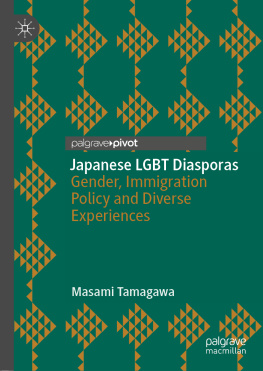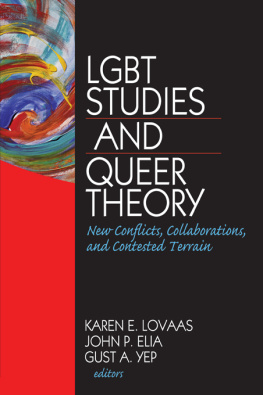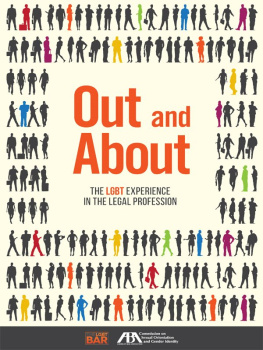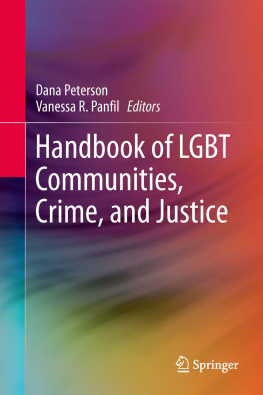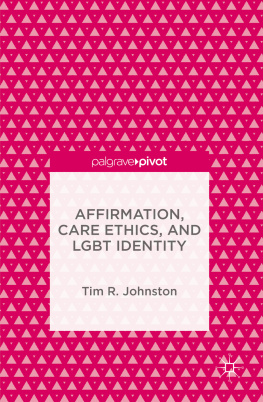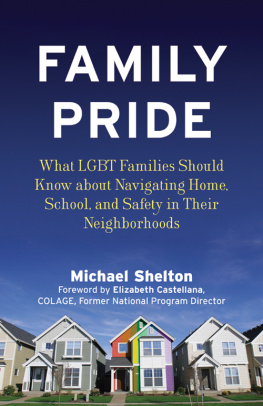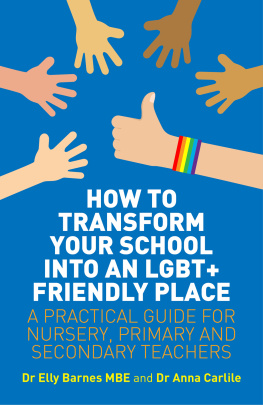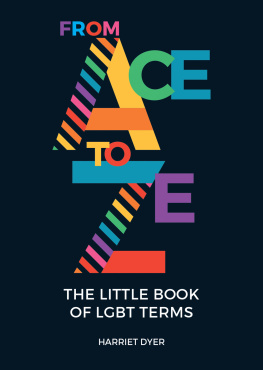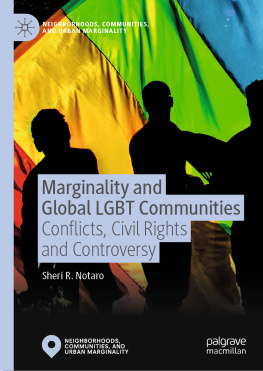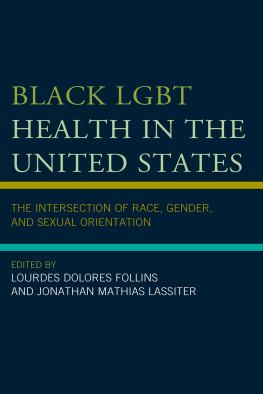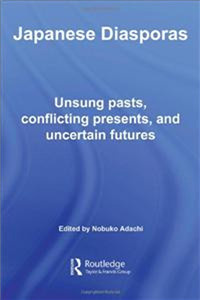Contents
Landmarks
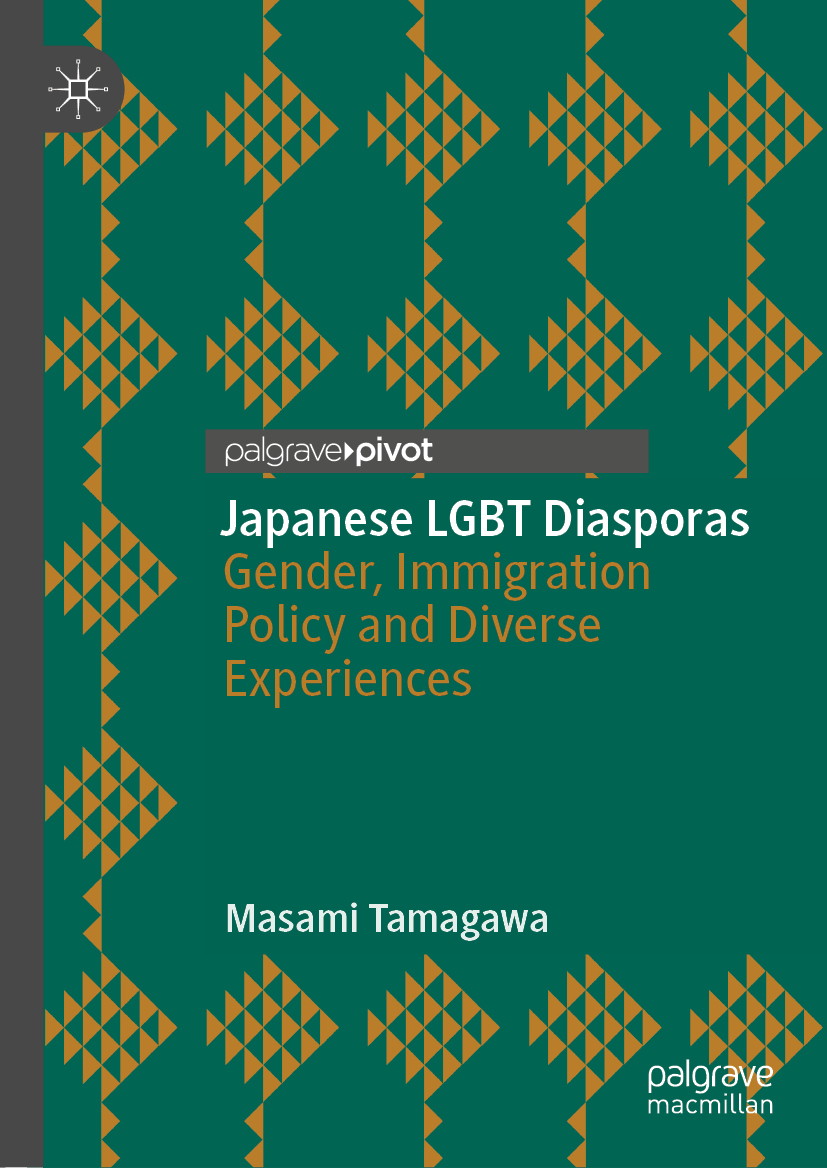
Masami Tamagawa
Japanese LGBT Diasporas
Gender, Immigration Policy and Diverse Experiences
Masami Tamagawa
Skidmore College, Saratoga Springs, NY, USA
ISBN 978-3-030-31029-5 e-ISBN 978-3-030-31030-1
https://doi.org/10.1007/978-3-030-31030-1
The Editor(s) (if applicable) and The Author(s), under exclusive license to Springer Nature Switzerland AG 2020
This work is subject to copyright. All rights are solely and exclusively licensed by the Publisher, whether the whole or part of the material is concerned, specifically the rights of translation, reprinting, reuse of illustrations, recitation, broadcasting, reproduction on microfilms or in any other physical way, and transmission or information storage and retrieval, electronic adaptation, computer software, or by similar or dissimilar methodology now known or hereafter developed.
The use of general descriptive names, registered names, trademarks, service marks, etc. in this publication does not imply, even in the absence of a specific statement, that such names are exempt from the relevant protective laws and regulations and therefore free for general use.
The publisher, the authors and the editors are safe to assume that the advice and information in this book are believed to be true and accurate at the date of publication. Neither the publisher nor the authors or the editors give a warranty, expressed or implied, with respect to the material contained herein or for any errors or omissions that may have been made. The publisher remains neutral with regard to jurisdictional claims in published maps and institutional affiliations.
This Palgrave Pivot imprint is published by the registered company Springer Nature Switzerland AG
The registered company address is: Gewerbestrasse 11, 6330 Cham, Switzerland
Acknowledgements
Portions of this research were supported by a Faculty Development Grant at Skidmore College, whose support is gratefully acknowledged. The views expressed are those of the author and do not necessarily reflect the views of Skidmore College.
Contents
List of Tables
Table 1.1 Sample Descriptive Statistics
Table 1.2 Select Participants (narrative) ( N = 35)
Table 2.1 Participants Assessment of LGBT Experience in Japan
Table 3.1 Key Results by Host Country
Table 3.2 Current Living Situations
Table 3.3 What Makes You Satisfied?
Table 3.4 What Makes You Dissatisfied?
Table 4.1 Services and Events for the LGBT-Support Group ( N = 55)
Table 4.2 I May Want to Return to and Live in Japan If Legal Protection of Human Rights Among LGBT Individuals Is Guaranteed. Do You Agree?
The Author(s) 2020
M. Tamagawa Japanese LGBT Diasporas https://doi.org/10.1007/978-3-030-31030-1_1
1. Introduction
Masami Tamagawa
(1)
Skidmore College, Saratoga Springs, NY, USA
Abstract
After discussing Japanese immigration histories and statistics to the USA, Canada, and Australia, as a background, the introductory chapter surveys the conditions of LGBT individuals in contemporary Japanese culture and society, including some popular notions, such as gay-friendly Japan, the difficulty of coming out of the closet, the lack of legal protection of LGBT individuals and couples at the national level, as well as gender inequalities in employment and sexuality. Also, a number of publications concerning LGBT refugees and immigration are examined and some of the major objectives of the present project are discussed. In addition, the chapter discusses methodology, including the online survey the author conducted in the summer of 2018, including the categories of questions, languages used, closed-end, and open-ended questions. While taking the online questionnaire, participants often noted comments and explanations. Also, about half of the participants volunteered to participate in a follow-up study and the majority of them enthusiastically shared their experiences and thoughts. Their narratives serve as a valuable source of information for an ethnographic analysis of their experiences. Additionally, the chapter offers statistics on the participants (N=55), including their nationalities, linguistic diversity, sexuality, gender identity, and the average number of years overseas, as well as some of the major characteristic of select participants (N=35).
Keywords
Japanese migration history Queer migration Asian & Pacific Islanders (API) LGBT refugees LGBT rights
Introduction
While empirical studies on LGBT refugees from Muslim countries are common, these studies are rare from Northeast Asian countries. Through a close examination of the data collected from an online survey, as well as follow-up responses, this study explores the lives of Japanese LGBT individuals in the USA, Canada, and Australia and seeks to find some of the major reasons they have left Japan , their present situations, needs, and future plans. The findings from the three different countries will be comparatively examined. Also, the findings from this project will be compared with the findings from previous studies on LGBT refugees and carefully examined to identify some of the major similarities as well as differences between Japanese LGBT immigrants and LGBT refugees.
A refugee from Japan may sound an oxymoron; however, the findings will attest, although Japan does not have a sodomy law , LGBT experiences in Japan are not any better. Japanese society seems to tolerate ( kany ) its queer members, as long as they stay in their place on the societys margin, Japanese LGBT individuals typically experience an overt, direct rejection, including homophobia , when they come out to their parents. Due to their social marginalization as well as rejection by their parents, Japanese LGBT individuals suffer greatly and have some profound reasons to leave the country.
Once in the USA, Canada, or Australia, Japanese LGBT diasporas continue to have some major difficulties, due, for example, to immigration issues , cultural differences, and a language barrier , among others. Further, the findings attest that migration to these countries is a gendered experience and that gay men, and possibly bisexual men, seem to have some critical advantages over the others at multiple points in Japan as well as abroad in their course of migration. Moreover, immigration as well as LGBT policies in their host countries play major roles in their experiences abroad. In conclusion, I will address their special needs among Japanese LGBT diasporas , highlighting suggestions and recommendations for lawmaker and activists, and propose social services aimed at them.
History of Japanese Migration Prior to World War II
In Japanese history, a little over a million people have migrated overseas. Apart from a few diplomats, travelers, and the like, the majority of them have left the country over the last 150 years, notably, approximately 800,000 people from the mid-nineteenth century to the outbreak of World War II (JICA ).

